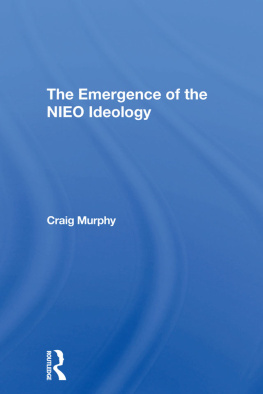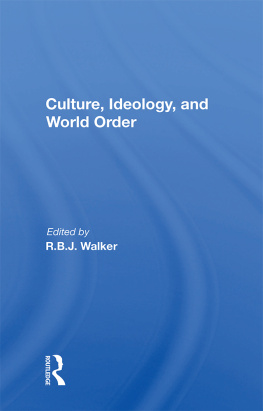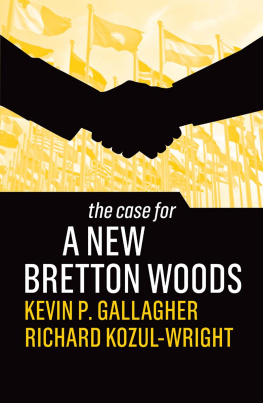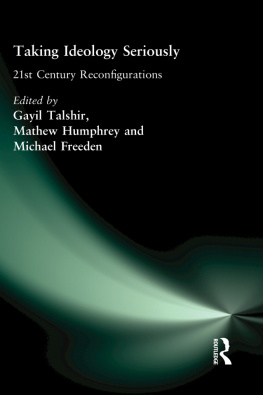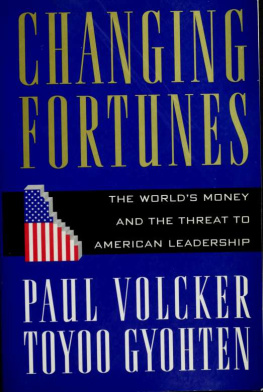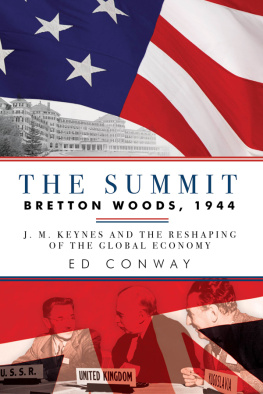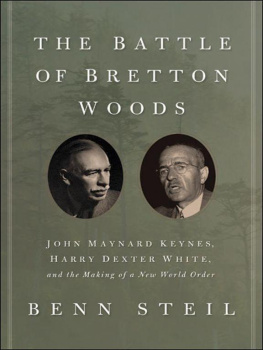The Emergence of the NIEO Ideology
Also of Interest
* The Challenge of the New International Eaonomia Order, edited by Edwin . Reubens
* Threat to Development: Pitfalls of the NI EO, William Loehr and John P. Powelson
U.S. Foreign Policy and the New International Eaonomic Order: Negotiating Global Problems, 1974-1981, Robert K. Olson
U.S. Foreign Policy and Multilateral Development Banks, Jonathan E. Sanford
* International Financial Cooperation: A Framework for Change, Frances Stewart and Arjun Sengupta, edited by Salah Al-Shaikhly
Development Financing: A Framework for International Financial Cooperation, edited by Salah Al-Shaikhly
The Lending Policy of the World Bank in the 1970s: Analysis and Evaluation, Bettina S. Hurni
* Debt and the Lees Developed Countries, edited by Jonathan David Aronson
The Eoonomics of Foreign Aid and Self - Sustaining Development, Raymond F. Mikesell with Robert A. Kilmarx and Arvin Kramish
Comparative Development Perspectives, edited by Gustav Ranis, Robert L. West, Cynthia Taft Morris, and Mark Leiserson
The Challenges of South-South Cooperation, edited by Breda Pavlic, Raul R. Uranga, Boris Cizelj, and Marjan Svetlicic
* From Dependency to Development: Strategies to Overcome Underdevelopment and Ineqwality, edited by Heraldo Muoz
The Economies of New Technology in Developing Countries, edited by Frances Stewart and Jeffrey James
Information, Economies and Power: The North-South Dimension, edited by Rita Cruise O'Brien
* The Foreign Policy Priorities of Third World States, edited by John J. Stremlau
*Available in hardcover and paperback.
Westview Special Studies in Social, Political, and Economic Development
The Emergence of the NIEO Ideology
Craig Murphy
This study traces the political history of the ideas underlying Third World calls for a New International Economic Order. Filling a significant gap in the literature, the book shows that NIEO ideology has a direct, unbroken line of development extending back to World War II, when a "new international economic order," the Bretton Woods system, was created. Dr. Murphy maintains that NIEO ideology is not rooted only in Third World acceptance of Prebisch's views on trade; rather, it evolved from Third World attempts to cope with problems and opportunities that emerged as the Bretton Woods system was created, operated, and began to break down. By the 1970s, the ideology had become a complex and coherent analysis of the economic position of Third World states, including a political analysis of how Third World views could be made dominant.
Many of Dr. Murphy's conclusions challenge the conventional wisdom about the Third World position of the NIEO. In addition, his study offers insight into the relatively unexplored area of how changes in political and social consciousness affect international systems, and provides grounds on which officials from both the South and the North can see the others' views as less alien.
Craig Murphy is assistant professor of political science at Wellesley College. He is the author of numerous journal articles in International Interactions, International Studies Quarterly, and The Legion Observer (in Ghana).
First published 1984 by Westview Press, Inc.
Published 2019 by Routledge
52 Vanderbilt Avenue, New York, NY 10017
2 Park Square, Milton Park, Abingdon, Oxon OX14 4RN
Routledge is an imprint of the Taylor & Francis Group, an informa business
Copyright 1984 Taylor & Francis
All rights reserved. No part of this book may be reprinted or reproduced or utilised in any form or by any electronic, mechanical, or other means, now known or hereafter invented, including photocopying and recording, or in any information storage or retrieval system, without permission in writing from the publishers.
Notice:
Product or corporate names may be trademarks or registered trademarks, and are used only for identification and explanation without intent to infringe.
Library of Congress Catalog Card Number 83-50979
ISBN 13: 978-0-367-29169-3 (hbk)
This book began as a doctoral dissertation in political science at the University of North Carolina at Chapel Hill. My advisor, Andrew Scott, both suggested the original idea and gave me help throughout my doctoral research. The other members of my dissertation committee, Enrique Baloyra, Claudio Cioffi-Revilla, Fredrico Gil, and Jeffrey Obler, provided me with detailed comments and suggestions. I also received suggestions and support from other graduate students working on dissertations in international relations at the same time, Bobby Childress, Tom Havener, Roseanne Lipe, and especially Doug Nelson. Paul Streeten and Margaret de Vries generously answered my initial naive questions about the workings of the Bretton Woods institutions. The documents librarians at the University of North Carolina and at Wesleyan University constantly found ways to make my research easier. Elizabeth Grover, the secret reason why so many of the political science faculty at the Johns Hopkins University write well, did much more than type my dissertation.
Ernst Haas, Jeffrey Hart, Stephen Krasner, Wentworth Ofuatey-Kodjoe, and two anonymous reviewers read and commented on my manuscript as I rewrote it. My senior colleague at Wellesley College, Linda Miller, gave me moral support throughout the process. The editors of International Studies Quarterly helped me refine arguments that appear in as well as in an article in their journal, "What the Third World Wants: An Interpretation of the Development and Meaning of the NIEO Ideology," vol. 27 (March 1983): 54-76.
My sister, Claire Wilhelm, and parents, Arthur and Florence Murphy, encouraged me throughout the whole project. JoAnne Yates, my wife, tried valiantly to give me some of her writing skills. She succeeded, instead, in giving me much more.
Craig Murphy

